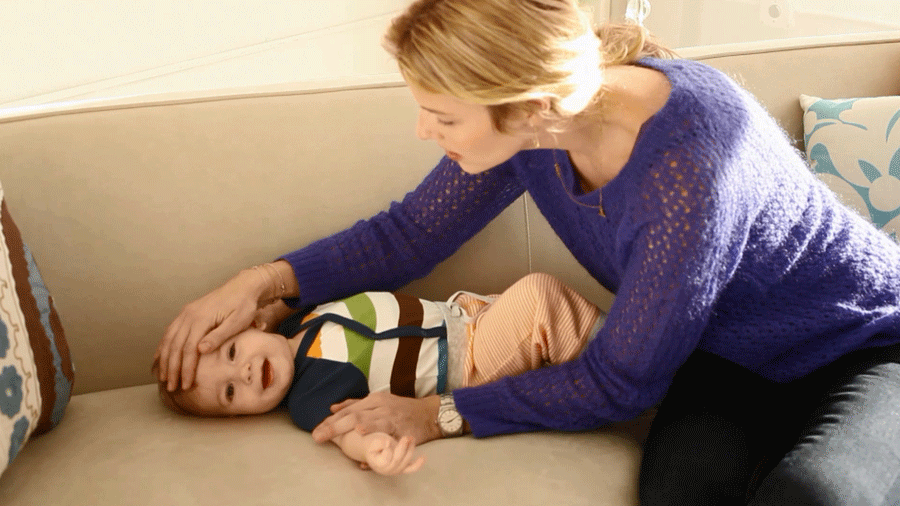Baby's First Fever

If it hasn't happened to you yet, it probably will soon: that heart-wrenching night when your baby awakes with his first fever, earache, or head cold. As frightening as it can be to see such a little one so helpless, it pays to keep your cool and check some basic symptoms before you call your pediatrician.
First, see if your baby has a fever. Lay the back of your hand on her forehead, or kiss it. If she seems warm, take her temperature using a rectal thermometer. Make sure it's clean, rinsing it in hot soapy water and then dipping it in rubbing alcohol. Before you insert the thermometer, lubricate the tip with a dab of petroleum jelly. Position your baby face down across your legs and spread her buttocks, then gently insert the thermometer without forcing it. Pinch her buttocks closed and wait for one minute. (If your baby is squirming too much, a half-minute will give you a fairly accurate reading-just be sure to tell the doctor how long the thermometer was in.)
While a fever is a frightening event, it is often, in and of itself, not dangerous. In fact, many medical experts now consider fevers useful in helping to fight infection. The current recommendation is that any baby over 6 months old with a temperature between 101° F. and 103° F. can be observed at home for 24 hours. If the fever persists after that period, or goes down and then rises again, you should contact your pediatrician. Fevers higher than 104° F. should be attended to immediately.
Keep in mind, too, that if your baby is really sick, she will be exhibiting other symptoms in addition to a fever: vomiting, a rash, runny nose, coughing, or labored breathing. Behavioral changes-unusual crankiness, pulling on the ears, increased or decreased sleeping, lethargy, or a dramatic loss or increase in appetite-should also be considered for a complete diagnosis. Moreover, the following conditions in babies are considered to be truly toxic-a term that physicians use to describe an overall impression of extreme illness-and require immediate attention:
An inability to suck for two or more consecutive feedings.
An inability to cry in the usual strong, lusty manner.
Unusual irritability that lasts longer than four hours and is not calmed by holding or feeding.
It's a good idea to have on hand some infant acetaminophen-a frequently recommended treatment for fever. Never give your baby aspirin, which has been linked to a life-threatening condition called Reye's syndrome-a rare but often fatal illness in which a fluid imbalance causes swelling of the kidneys and brain. In fact, it's always wise to talk to your physician before giving your baby any sort of medication.
All content here, including advice from doctors and other health professionals, should be considered as opinion only. Always seek the direct advice of your own doctor in connection with any questions or issues you may have regarding your own health or the health of others.
Updated 2009

